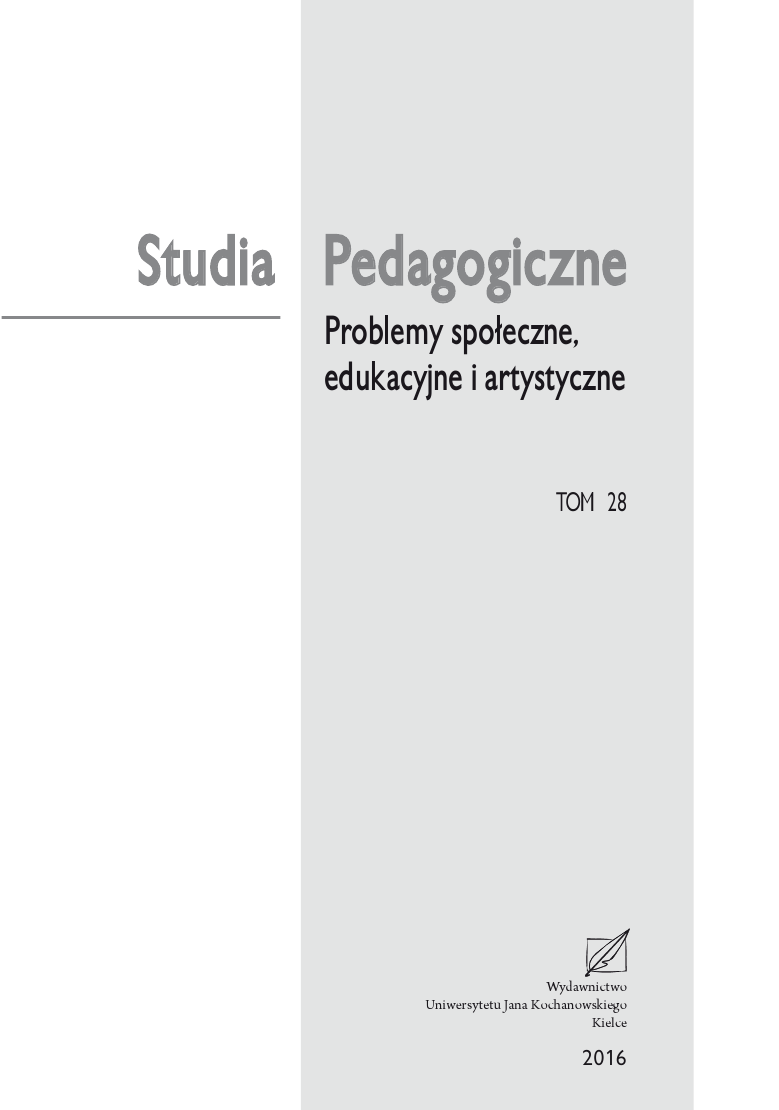Obraz społeczności akademickiej i jej kultury we wspomnieniach z XIX i XX wieku
The image of the academic community and its culture in the memories of the 19th and 20th centuries
Author(s): Hanna MarkiewiczSubject(s): Cultural history, History of ideas, Higher Education , Sociology of Education
Published by: Wydawnictwo Uniwersytetu Jana Kochanowskiego
Keywords: higher education; the history of the 19th and 20th century; memories;
Summary/Abstract: Culture of the Polish academic community has been, and still is, undergoing transformation under the influence of the ever changing political as well as economic and social reality. This can be tracked by looking into the memoirs of 19th- and 20th-centuries luminaries of Polish science from the Vilnius and Warsaw centers. Professorship of both Universities and their young students represent the culture of academic community. Jozef Frank needs to be mentioned as one of the first educators in Vilnius in the 19th century. He was an exceptional doctor and also a social activist whose lectures were attracting crowds of students and the notes taken during those lectures were being passed around even before the university topographer managed to issue them as a text book. A few of Frank’s students reached high social status, one of them being Michał Homolicki, who was initially just a student and later on a friend of the professor, and who subsequently gained employment at the Medical Academy of the Vilnius University. Appropriate visual appearance of the professors, their dress code as well as that of the students’, testified to the respect and was an expression of personal culture of both groups, also cultivated and promoted among the people of Vilnius. Many initiatives by the Vilnius professorship to support not only the students but also the residents of Gediminas town stirred the public to action for the benefit of the town and its citizens. The interwar period was also full of personalities. Professor Kościałkowski, warmly remembered by PawełJasienica, did not tolerate cheating, prompting, anything that could be construed as fraud. Always sticking to the stringent rules he will also be remembered by his students as an honest and conscientious person, who cared about the ethics and helped to shape proper attitude towards learning.Two types of recollective texts reflect the atmosphere of Warsaw University. An already forgotten personal history of Ludwik Krzywicki and Lidia Winniczuk’s memoirs.In so far as Krzywicki recollects the times of the Russian Partition, Winniczuk’s memoirs include the period of the Second Polish Republic. There was an interesting image of the affection shown by Polish students towards a relative small number of Russian lecturers, who were brave enough to express critical opinion about the Tsarist rule, about the Russification of educational policy. When these lecturers were leaving the School of Warsaw they were seen off with due respect by grateful Polish students who honored their dedication and courage. Lidia Winniczuk’s memoirs have shown us not only the academic atmosphere of the 1920's Warsaw but also efficient organization of the University with its kindness towards students while imposing requirements, so much different from the contemporary ones, towards them. Punctuality, preparation for classes,knowledge of foreign languages and personal culture of both differed significantly, and regrettably, from modern standards and according to the author of the article, it would be worthwhile to return to such practices so that Polish universities would really educate the cultural and intellectual elite, and at the same time influence the level of civilizationof the population.
Journal: Studia Pedagogiczne. Problemy Społeczne, Edukacyjne i Artystyczne
- Issue Year: 28/2016
- Issue No: 28
- Page Range: 85-100
- Page Count: 16
- Language: Polish

